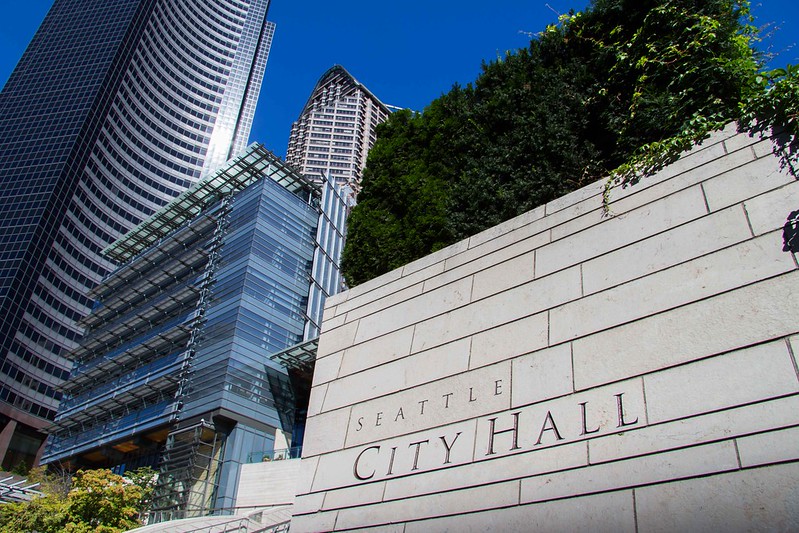Summarize this content to 2000 words in 6 paragraphs
Seattle City Hall. (Photo by Seattle City Council, via Flickr, Creative Commons)
The Seattle City Council Thursday approved more than $8 billion for its latest budget, while rejecting a proposal to create a 2% capital gains excise tax designed to fund housing and food programs for low- and middle-income families.
The council also agreed to remove spending restrictions on the Payroll Expense Tax, which applies to some of the city’s largest employers, including Amazon.
The controversial tax, also known as JumpStart, was originally earmarked for programs addressing homelessness, equitable economic development, and environmental efforts.
Going forward, the city will be able to use JumpStart funds — which are expected to total more than $400 million this year — on general fund expenses without requiring special permission to do so. This year, $250 million was redirected from the tax’s intended uses to cover general fund needs. The tax has brought in significantly more money than anticipated when it was passed in 2020, which leaders have used as a justification for reallocating some of the revenue.
The 2025-2026 budget includes $340 million in funding for affordable housing and what the council called “record-high investments in public safety programs,” which allows for an expansion of the Community Assisted Response and Engagement program and more staff in the 911 call center.
But there are lingering concerns about future budget deficits, which City Councilmember Cathy Moore hoped to address when she proposed the capital gains tax.
Moore called for a tax that was lower but otherwise identical to a 7% state capital gains tax, enacted in 2022, that applies to profits of more than $262,000 made from the sales of stocks and bonds.
Earlier this week, the council voted 4-4 on the tax, with one member abstaining. The amendment advanced without a “pass” recommendation as part of the budget package. On Thursday, the council defeated the tax on a 6-3 vote, the Seattle Times reported.
The tax “unfortunately failed,” Moore said in a statement. “As a number of council members stated the legislation needed more work or that it was the ‘right tax at the wrong time,’ I will be bringing this legislation back in early 2025 for additional work and consideration.”
RELATED COVERAGE:












